Endodontic Retreatment
Having a root canal performed on a tooth can allow you to keep that tooth for a lifetime, but there is a possibility of requiring an endodontic retreatment (root canal retreatment) at some point. At Brevard Endodontics our compassionate endodontists understand just how frustrating it can be to need retreatment of a previous root canal.
We promise to work hard to ensure every attempt has been made to save your natural tooth. Whether a previous dentist or endodontist caused the issue or not, our team is here for you. A previously treated tooth can become painful or infected shortly after having a root canal or even months or years later. Fortunately, our endodontists can retreat the root canal and preserve your natural tooth.
What is Endodontic Retreatment?
Endodontic retreatment consists of entering the tooth again and removing all old root canal filling materials. At this time, the tooth is inspected under high magnification to see if there is a clear reason for the continued or recurrent infection, such as cracks or untreated canals.
The canal system is then disinfected and refilled with clean filling material. The process of retreatment is sometimes performed in two separate appointments.
Reasons Why an Initial Root Canal May Fail
A root canal involves the removal of inflamed or infected soft tissue found at the center of a tooth, referred to as the pulp, or the bacteria that may have replaced the pulp after it has become infected. Once the contents are removed, the chamber is flushed and then disinfected and filled with a biocompatible compound called gutta percha, along with a cement that fills in any little gaps. Review our Root Canal Treatment procedure page for a more in-depth look at the root canal process.
When you are told your tooth needs endodontic retreatment, there are a few possible reasons, which may vary from tooth to tooth.
- Incomplete Cleaning of Canals - Roots come in different shapes and sizes. Some patients have canals that are harder to clean, for various reasons. These canal spaces are more difficult to clean using traditional methods. In some cases, the canals may just not have been well-filled. The cutting-edge equipment and software utilized here at Brevard Endodontics greatly improves our ability to detect complicated root systems and clean them adequately.
- Postponed Placement of Permanent Restoration - We recommend getting a permanent restoration immediately after completion of the root canal. Failure to have a permanent restoration placed on the root canal treated tooth severely increases the risk for infection and bacterial growth.
- Ill-fitting Crown or Other Type of Restoration - If you have a crown or other type of restoration placed over the root canal treated tooth and it does not fit properly, just the saliva in the mouth is enough to cause an infection. The bacteria that are always present in your saliva will attach to the tooth, colonize the canal space, and bacterial colonies will grow until they have re-infected the entire tooth.
- New Decay Leads to New Infection - Although the tooth has been root canal treated, it can still be exposed to new decay. New decay often leads to new infection, and new infection requires retreatment.
Tooth Infection
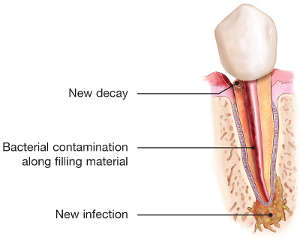
Tooth Abscess
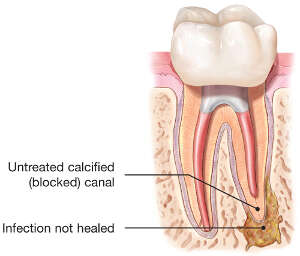
Root Canal Temporary
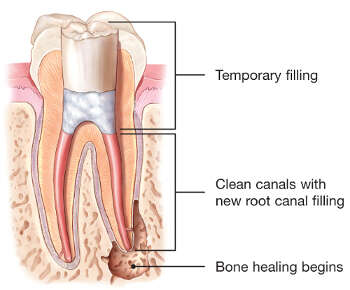
Canal
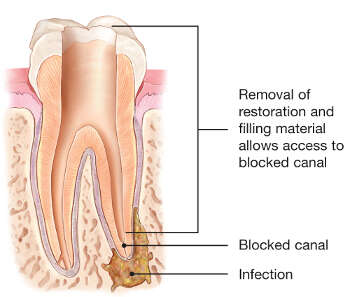
Root Canal
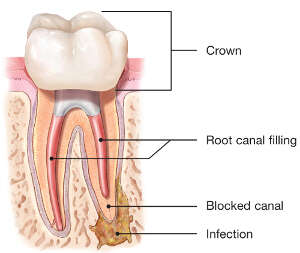
Root Canal Crown
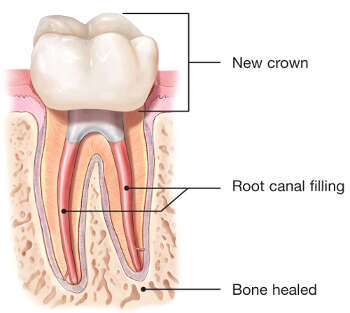
Contact Brevard Endodontics of Melbourne, Florida Today
Endodontic Retreatment can allow you to keep your natural tooth. Endodontic Retreatment may take more than one visit to complete. If your dentist referred you to our office or you suspect a tooth needs a root canal, a root canal retreatment or you are in pain, please call our office to schedule an appointment. We work hard to accommodate our patients’ needs and do make appointments on an emergency basis when necessary.


